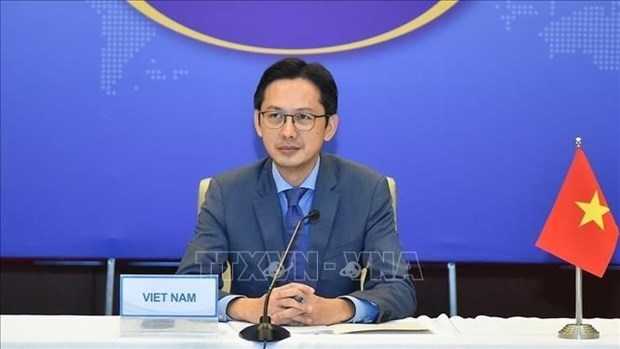Vietnam seeks stronger ties to deal with challenges in Mekong River basin
VOV.VN - Prime Minister Pham Minh Chinh’s participation at the fourth Mekong River Commission (MRC) Summit in the Laotian capital of Vientiane shows the nation’s attention and determination to boost its role in responding to challenges, while reinforcing solidarity with other members to manage and use the river’s water resources in a sustainable manner.

Deputy Minister of Foreign Affairs Do Hung Viet made this statement in a recent media interview following the conclusion of the fourth MRC Summit.
According to Deputy Minister Viet, the Vietnamese Government chief extended important, profound messages at the summit, affirming the country’s strong commitments to the 1995 Mekong Agreement, thereby calling on countries to fully comply with the document, as well as rules relating to the use of the water resources.
He also underlined a comprehensive approach which puts people at the centre and the subject in the exploitation and use of the water resources, protects people’s legitimate rights and interests, as well as seeking to improve their adaptability to the river’s changes, along with devising ways to deal with extreme weather phenomena, floods, droughtsl and cross-border crimes.
PM Chinh proposed a broad array of specific co-operation activities, such as intensifying data sharing and uniting in research, climate change response, sustainable waterway development, cross-border crime combat, the building of a green economy and circular economy, electricity connectivity, and energy development.
He also called on partner nations, especially upstream ones and development partners, to co-operate and step up support in terms of knowledge, experience, finance, and resources to the commission, thereby helping it fulfill tasks and ensure sustainable development of the river and its basin.
The Lower Mekong countries of Vietnam, Laos, Cambodia. and Thailand have launched different socio-economic activities which impact the exploitation and use, Deputy Minister Viet said, citing forecast by experts that by 2040, the alluvium of the Mekong Delta will fall by more than nine times compared to the present, and nearly 30 times compared to 15 years ago.
The threat is further compounded by the extremely negative impacts of climate change that are causing extreme weather events, floods, droughts, and sea level rises, resulting in saltwater intrusion that adversely affect the Mekong Delta, as well as water and food security in the region.
Many other delegates shared the PM’s messages, Deputy Minister Viet said, adding that the participating countries also shared the need to step up co-operation and outline common plans and projects in a bid to ensure the sustainable development of the basin.

